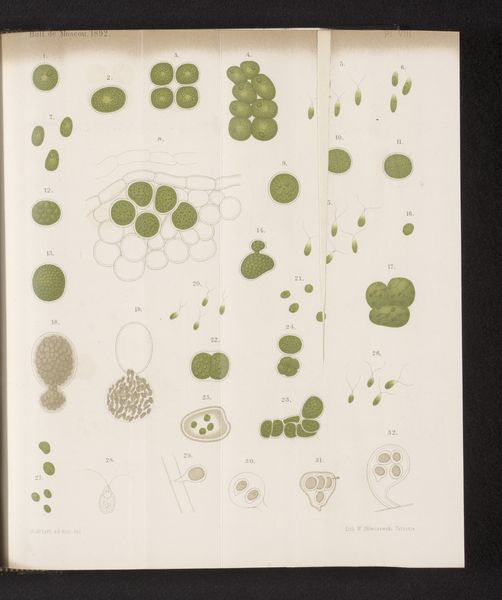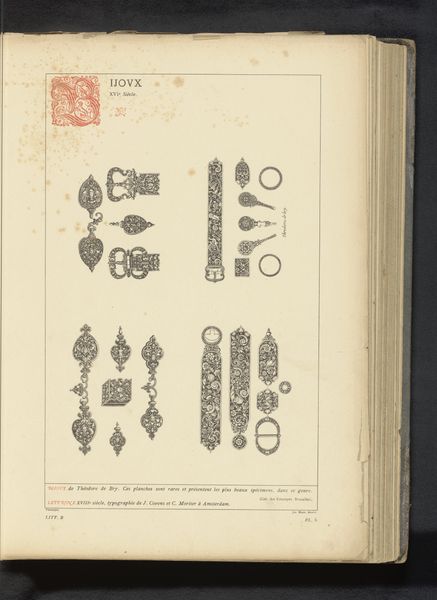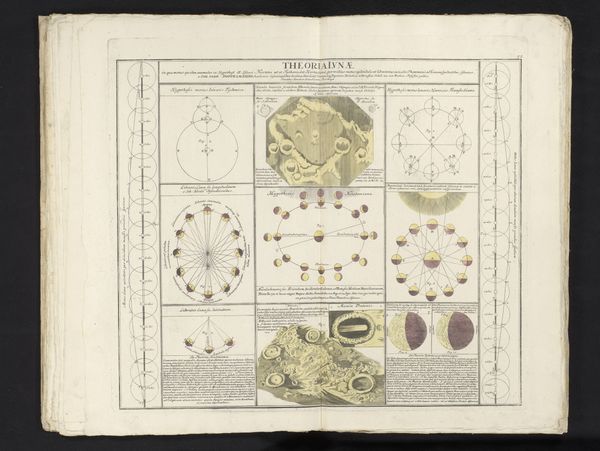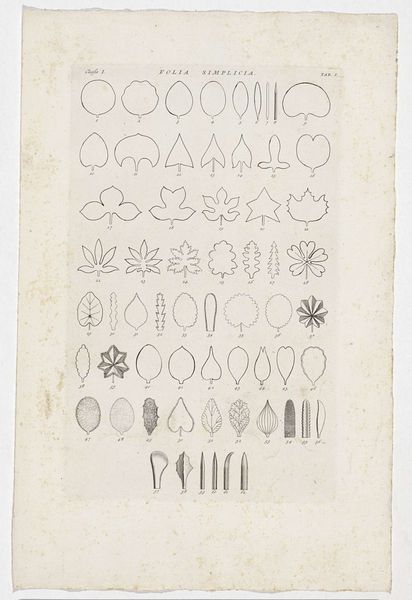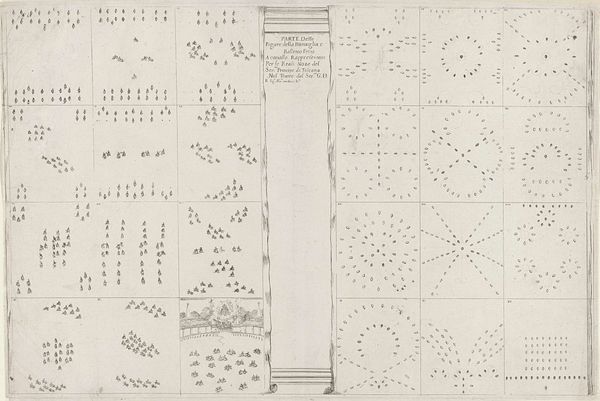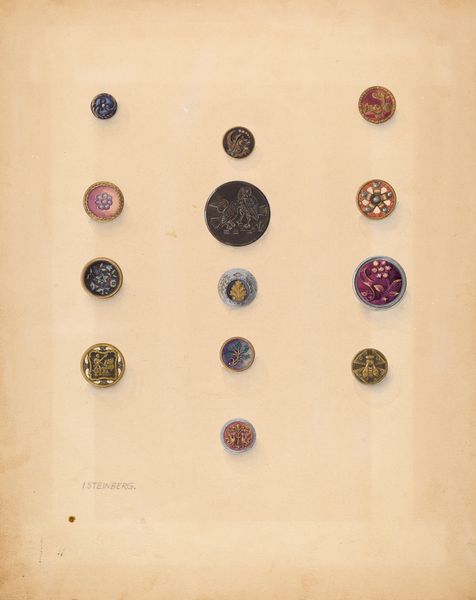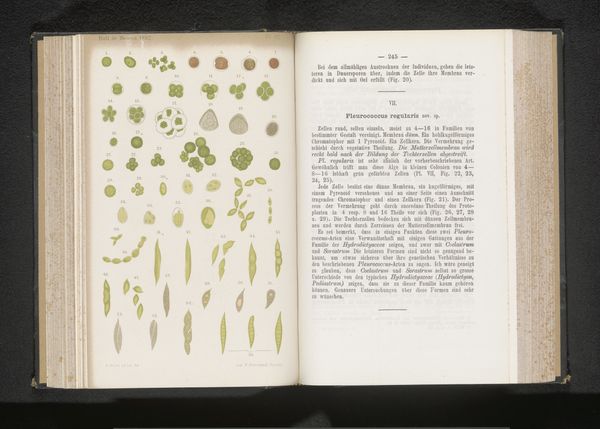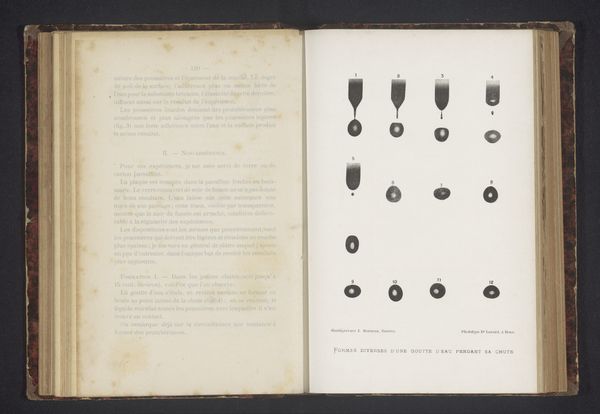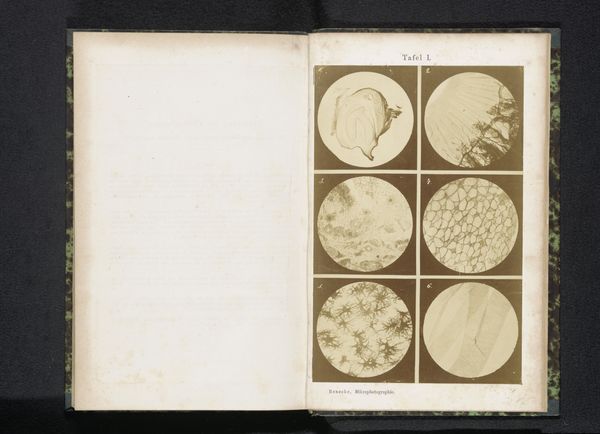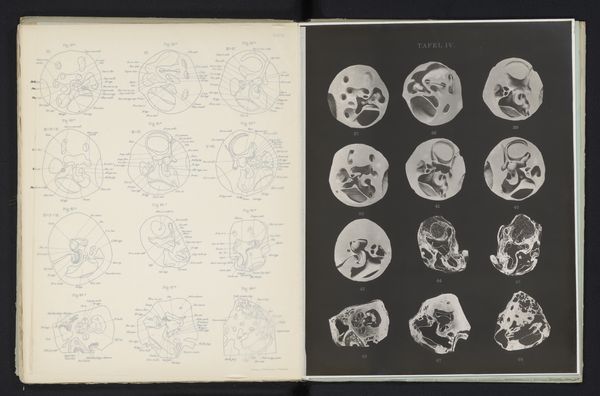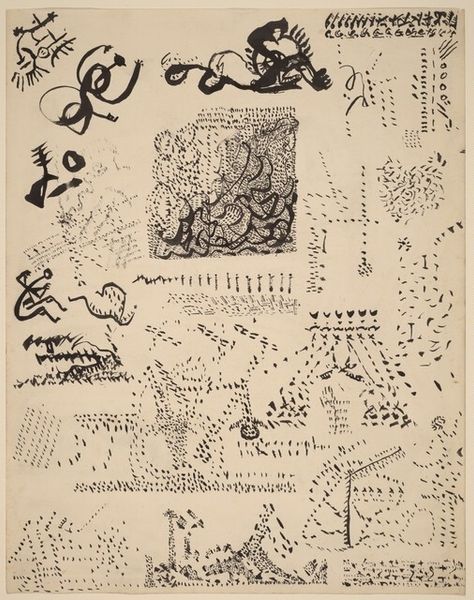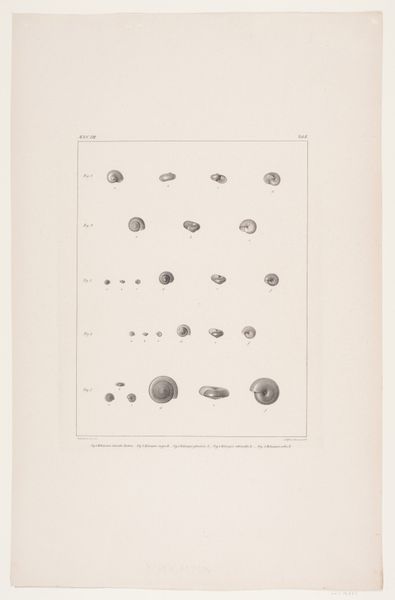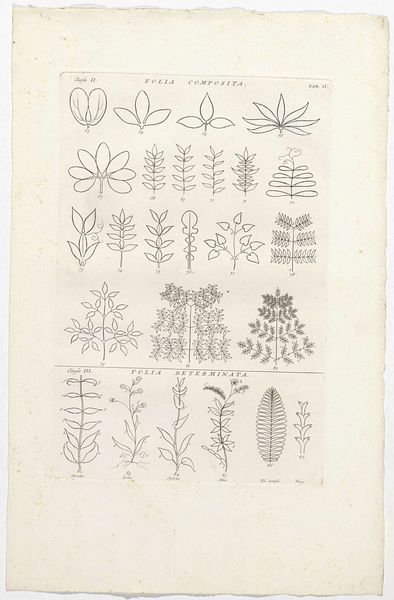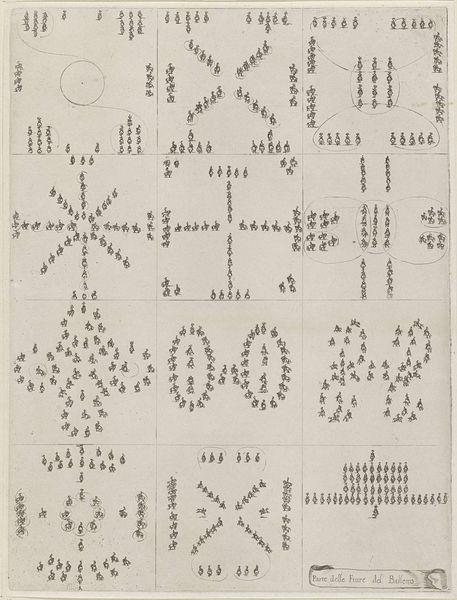
drawing, print
#
drawing
#
organic
# print
#
organic pattern
#
academic-art
Dimensions: height 226 mm, width 200 mm
Copyright: Rijks Museum: Open Domain
Curator: Here we have W. Główczewski's "43 voorstellingen van cellen", a print and drawing dating from before 1893. Editor: The array of shapes is fascinating. It looks like a cross between a botanical study and an abstract composition. How do you interpret this work, focusing on its form? Curator: The meticulous arrangement, categorizing cellular structures, is quite striking. The artist employs subtle tonal variations and precise line work to differentiate each form. We can observe a clear intent to represent the subject matter with accuracy, yet there's also a visual rhythm created by the repetition and variation across the grid. Editor: So the form reinforces its scientific intent through the arrangement. The green palette is very muted, adding a sense of history, but also a unified texture throughout. Curator: Precisely. The subdued coloration serves to emphasize the formal qualities, allowing for detailed scrutiny of the morphology presented. One could argue that the artist’s selection of this limited palette reveals an intention to deemphasize aesthetics for scientific clarity, don’t you think? Editor: That’s a great point. At first I thought the color palette was incidental, but perhaps it helps reinforce that it is trying to convey scientific information. The lack of hierarchy is also intriguing; no particular cell form seems privileged over another. Curator: An astute observation. Each form is given equal visual weight, preventing a subjective hierarchy. We see a commitment to cataloguing without implying artistic preference. Do you find that this impartial rendering contributes to a sense of scientific objectivity? Editor: Absolutely, I agree. Thinking about the visual weight gives me a better way of entering into the work, I better appreciate now the scientific focus achieved in this image. Curator: And I’ve appreciated you calling me back to a first-impression, focusing primarily on its organic patterning, texture, and unifying "scientific" elements.
Comments
No comments
Be the first to comment and join the conversation on the ultimate creative platform.
